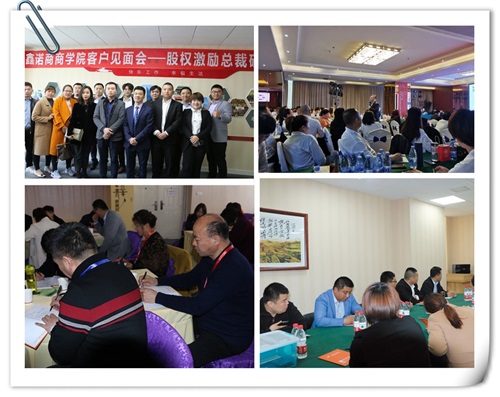股权背后代表的是股东拥有的权利,是基于股东地位而取得的包括财产权、经营管理权在内的多种权利的集合体。只要拥有了股权,就意味着拥有了该公司的所有权。股权所对应的权利一般包含以下几个大的方面:
Behind equity represents the rights owned by shareholders, which are a collection of various rights obtained based on shareholder status, including property rights and management rights. As long as you have equity, it means you have ownership of the company. The rights corresponding to equity generally include the following major aspects:
1.决策权
1. Decision power
决策权指的是股东享有的表决权,主要体现在股东会中针对所议事项的表决。股东会作为公司的高权力机构,股东对会议上所做的任何决策都代表着高的权力。
Decision making power refers to the voting rights enjoyed by shareholders, mainly reflected in the voting on the matters discussed at the shareholders' meeting. The shareholders' meeting, as the high authority of the company, represents high power in any decisions made by shareholders at the meeting.
2.经营者的选择权、经营管理权
2. Option and management rights of operators
这两个方面更多的是指股东有针对经营者、企业经营管理方面的选择权。股东可以选择职业经理人来进行企业的管理,如果人选不合适,可以通过股东会换掉。股东自己也可以亲自参与公司的经营管理,对公司的经营做出方向性的决策。
These two aspects refer more to shareholders having the right to choose between operators and business management. Shareholders can choose professional managers to manage the enterprise, and if the candidates are not suitable, they can be replaced through the shareholders' meeting. Shareholders themselves can also personally participate in the company's management and make directional decisions regarding the company's operations.
3.知情权、质询权
3. Right to know and inquiry
任一股东,无论持股权的比例大小,对于公司的所有事项都有知情权和质询权,就是当你对某些事项不认同或者觉得有异议的时候,都可以提出质询。
Any shareholder, regardless of the proportion of shareholding, has the right to know and inquire about all matters of the company. That is, when you do not agree or feel that you have objections to certain matters, you can raise inquiries.

4.优先购买权、优先认购权
4. Right of First Refusal, Right of First Refusal
主要指公司的股东在股权上有优先权。当公司内部有股东想要退出或者转让自己的股权时,其他股东是可以先受让的,只有当公司内部所有股东都不主张这个权利时,转让者方可将自己的股权转让给公司股东以外的第三方。这也是在保证原有股东的权利,防止股权的恶意出售带来不适合公司发展的股东,对公司造成麻烦。
Mainly refers to the company's shareholders having priority in equity. When a shareholder within the company wants to withdraw or transfer their equity, other shareholders can first transfer it. Only when all shareholders within the company do not claim this right, can the transferor transfer their equity to a third party other than the company's shareholders. This is also to ensure the rights of existing shareholders and prevent malicious sale of equity from causing trouble to the company by shareholders who are not suitable for its development.
5.财产收益分配权
5. Property income distribution rights
这个主要包含分红权,当公司产生利润时,股东自然享受利润的分红。另外,还包括公司剩余财产(价值)的分配权,当公司解散或者经过发展沉淀,公司有剩余资产或者资金时,股东享受对应的索取权,应当对此部分的财产进行分配。
This mainly includes dividend rights, and when the company generates profits, shareholders naturally enjoy the dividends of the profits. In addition, it also includes the right to distribute the remaining assets (value) of the company. When the company dissolves or undergoes development and sedimentation, and the company has surplus assets or funds, shareholders enjoy the corresponding right to claim, and this part of the property should be distributed.
除以上权利外,其实股权的权利还有转让权、继承权、增值和溢价权等,无论是哪些权利,都属于股东在持有股权时法律赋予的应得的权利。我们只有正确了解这些权利,才能正确认识并在自己遇到问题时,能够捍卫自己的权利,或者在股东会中主张自己的权利。
In addition to the above rights, the rights of equity also include the right to transfer, inheritance, appreciation, and premium. Regardless of which rights are, they belong to the rights that shareholders are entitled to by law when holding equity. Only by correctly understanding these rights can we correctly understand and defend our rights when facing problems, or advocate for our rights in shareholder meetings.
对于以上我们讲的这些权利,更多的是针对有限责任公司和股份制公司来讲的,对于个体工商和有限合伙企业来说,他们的“股权”是有一定区别的。
The rights we mentioned above are more specific to limited liability companies and joint-stock companies. For individual businesses and limited partnership enterprises, their "equity" is somewhat different.
主要区别在于,他们也对应以上权利,但是表现形式有所不同,比如在个体工商当中是没有股东这一说法的,在有限合伙企业中一般约定的是财产份额,也无正式的股权比例之说。因为公司的主体不同,对应的约定、工商要求也有所不同。
The main difference is that they also correspond to the above rights, but their manifestations are different. For example, in individual businesses, there is no shareholder. In limited partnership enterprises, there is generally an agreement on the share of property, and there is no formal equity ratio. Due to different entities of the company, the corresponding agreements and business requirements also vary.
This tells us that when carrying out Jinan partnership design and entrepreneurship, the agreements between shareholders and the signing of agreements should be clearly stated in the description of the agreement, in conjunction with the legal subject of the operation, to avoid the invalidity of the agreement. For more related content, come to our website http://www.daoshangbao.com consulting service

